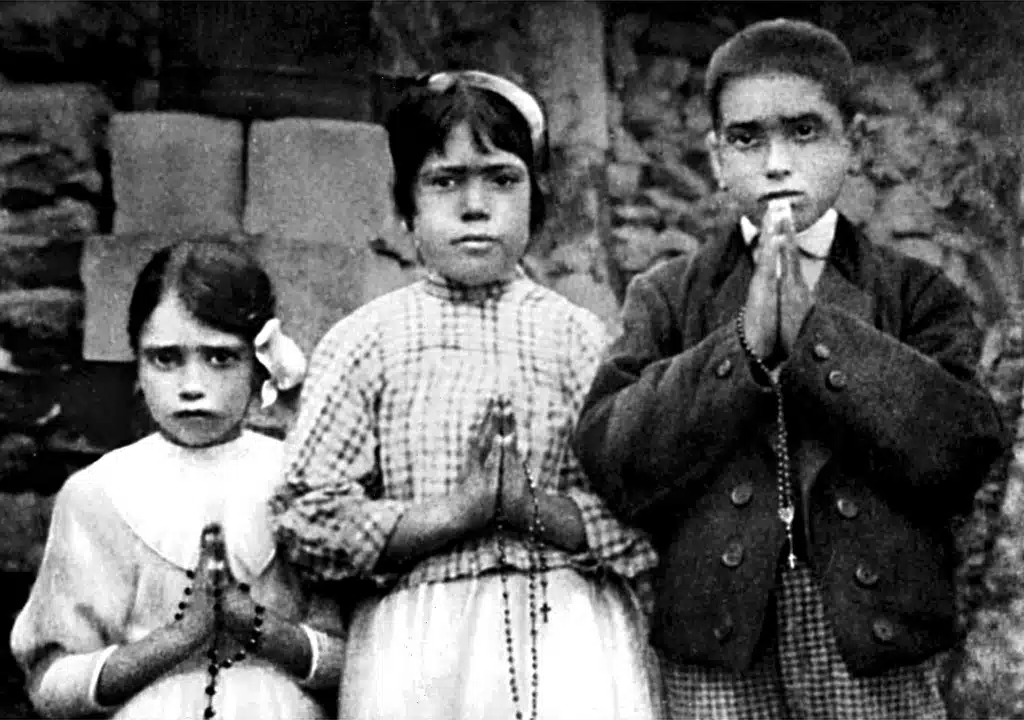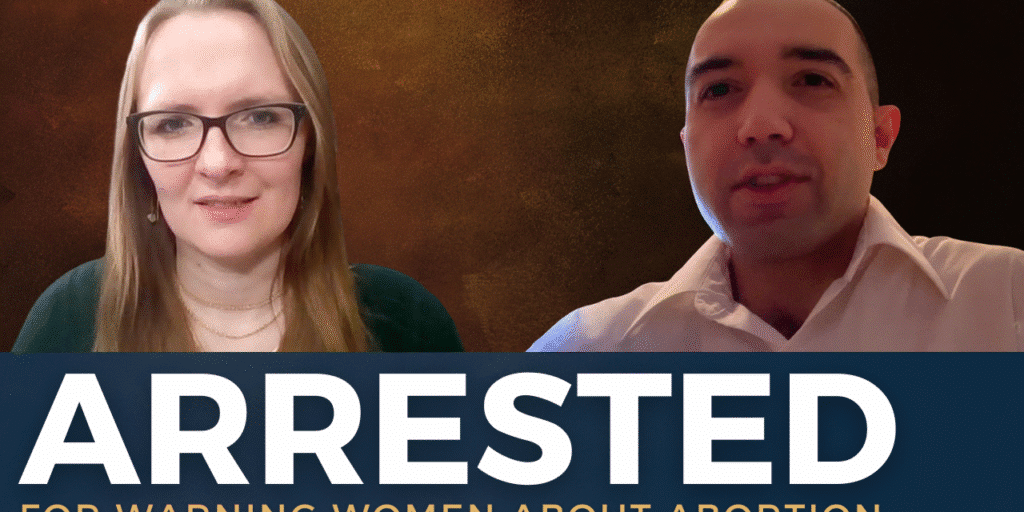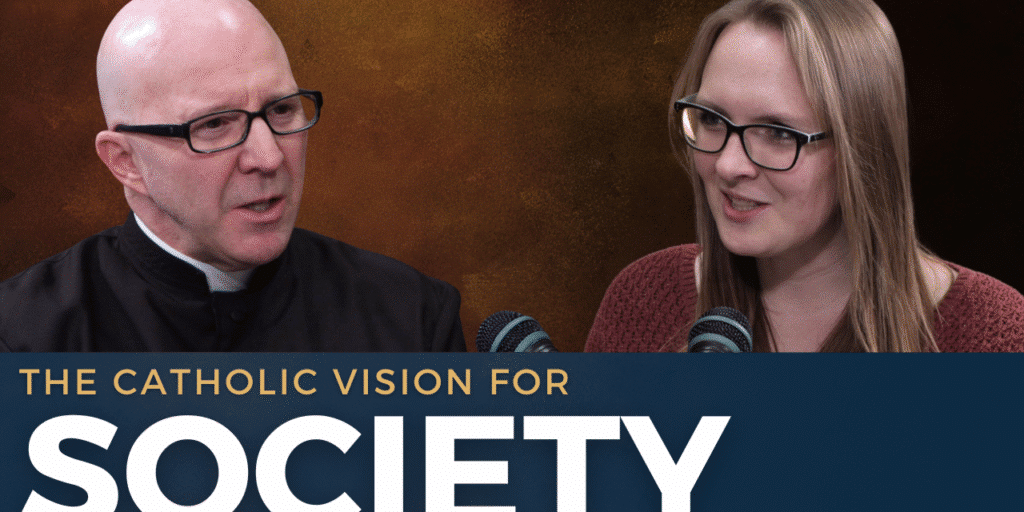Transgender Ideology and the Fight for Religious Liberty
Imagine, for a moment, that one day you are going about your business, and you receive a message, on Instagram, from a journalist.
The journalist has a question for you: How do you feel about the fact that you have just been charged with a crime that could land you in prison, for 10-25 years?
Now, imagine that this is the very first time that you have even heard about these charges. And then, imagine that the crime for which you are being charged is that you once called a man…a man.
This is the Orwellian, but very real situation that a Brazilian woman found herself in three years ago.
Charged for ‘Misgendering’ a Man
Isabella Cêpa is a Brazilian graphic designer and marketer.
In 2020, a politician who goes by the name of Erika Hilton successfully won a municipal position in the Brazilian city of São Paulo. Although the position itself was not particularly powerful, Hilton’s election was a watershed moment for Brazil, since Hilton, who is a biological man, self-identifies as a “transgender” woman.
At the time Cêpa, a self-described radical feminist, ran an Instagram page where she discussed violence against women. In the wake of Hilton’s election, she took to her page to vent her frustration.
“At the time I didn’t even know who this person was,” she told the website Reduxx in 2022. “I just saw a headline on an Instagram page celebrating that ‘the most voted woman in São Paulo is a transwoman.’ Then, I shared a video with my followers saying I was disappointed to hear that the most voted-for woman in São Paulo – later found out that it was in the entire country – was a man.”
At the time, Cêpa was a relatively prominent figure in feminist circles in Brazil. Her post came to Hilton’s attention. He then filed charges against her for “misgendering” him.
The law that Cêpa was charged under prohibits “racism.” However, in 2019 a majority of justices in the Brazilian Supreme Court expanded the definitions of this law to cover “transphobia,” thus prohibiting the so-called “misgendering” of a person who claims to be a particular gender.
An Escape From Brazil
In 2024, Cêpa was still waiting for her case to be heard. At the time, she decided to fly to Spain. In a recent interview with The European Conservative, she describes what happened next.
Before boarding her flight, she recounts, she was stopped at immigration at the Brazil airport. Her passport had been flagged because of the pending charges. While she stood there, the immigration officer began reading the case files on his computer. “This makes no sense,” Cêpa remembered the officer telling her.
That officer then took Cêpa to another room where a group of 8 immigration officers all read the case files. They were as flabbergasted as the first officer. “The agent called the cabin crew and told them: Do not close the doors of this airplane until this passenger is inside the airplane,” she remembers. “Then, he escorted me to the plane. As he walked me there, he said: If you have the opportunity, just don’t come back. It’s not safe for you to be here.”
Prior to this, Cêpa knew she was being charged with six charges but had not been told what four of those charges were about.
The Brazilian immigration officer gave her a copy of the case files, and she read them on the plane. She learned that some of the charges related to the original Instagram post, but that others (which she had not been told about) related to “retweets”: i.e. instances in which she simply reposted something that somebody else had said.
Refugee from Gender Ideology
Cêpa took the immigration officers’ advice and did not return to Brazil. For over a year she travelled around, waiting while friends in Brazil tried to get the charges dropped. Not only were they unsuccessful, but Brazilian authorities began investigating other women, including some of the women whom Cêpa had retweeted.
It was then that Cêpa realized that she needed to take matters very seriously. She filed for refugee status.
According to Cêpa, initially even EU officials did not believe her story, as there had never been another case like it. However, after reviewing the details of the case, they approved her application for asylum. Since then, Cêpa has been living in an undisclosed location, waiting for her case to be heard in Brazil.
The only good news in Cêpa’s case is that that the Brazilian Supreme Court recently decided to “archive” her case. While this means that the case against her will not move forward, this is not the same as altogether dropping the case. Theoretically, the High Court could still resurrect the charges against her at any time. And the original decision in which the court expanded the definition of racism to cover “transphobia” still stands.
Cêpa still has not returned to Brazil and has no plans to do so. Since the law that she was charged under, and the Brazilian Supreme Court’s reading of that law, is still technically on the books, she could easily be arrested and charged again for “misgendering” someone. And this time, Brazilian authorities might not let her leave.
She told The European Conservative that the ordeal has pushed her to the brink of despair. “I’m not sleeping. I have a psychiatrist appointment tomorrow. I’m changing my medication all the time,” she said. “It’s complicated, but I’m trying. It’s countless how many times I had suicidal thoughts during this journey. I got very close to it, but I have some really good friends who helped me through it.”
Brazil “Testing Ground”
It is common for South American pro-life and pro-family activists to complain about how wealthy and powerful globalist forces cynically manipulate the legal and judicial system and media in South American countries for their nefarious ends. What is most interesting about Cêpa’s case, however, is that she makes precisely the same allegations, but from a strongly feminist, leftist perspective.
Cêpa told The European Conservative that Brazil has become a “testing ground” for progressive forces to experiment with legal strategies that can then be exported to other nations. She notes that leftist groups and compliant media are peddling clearly fabricated statistics about how many individuals that identify as transgender are murdered in Brazil every year, with the goal of promoting radical legal changes.

“Open Society, the Ford Foundation, and many organizations from around the world put a lot of money into media,” she complained, “and all sorts of NGOs that spread fake numbers about the trans population in Brazil. This was used by the Supreme Court to create the ruling, and now the ruling is used to coerce and silence women who dare to say the obvious.”
Many of these same NGOs have long used the same tactic to push for legalized abortion. They, and their partners in the media, promote massively inflated statistics on such things as back alley abortions or the number of women who die from illegal abortions. They then strong-arm politicians or judges to simply legalize the killing of preborn children, ostensibly in order to “protect” women.
But rather than protecting women, the liberalized laws simply lead to the deaths of countless preborn children, and the wounding of their mothers.
UK Criminalizes “Offensive” Opinions
While Cêpa’s story is certainly the most extreme example of how fundamental freedoms are being demolished by radical leftist forces, it is in many ways only the tip of the iceberg of the assault on fundamental freedoms and human dignity.
In the UK, for instance, numerous individuals have received visits from the police after they posted “objectionable” content online. Many of them have been arrested and formally charged.
In fact, according to one recent story, police in the UK make 30 arrests, per day, of people for offensive online posts.
The most recent case involved an extremely prominent Irish comedian, who was arrested at Heathrow Airport for making social media posts on X (formerly Twitter) that were critical of transgenderism. Graham Linehan described the Orwellian experience of being interrogated over social media posts. “[The officer] asked about each of the posts in turn, with the sort of earnest intensity usually reserved for discussing something serious like … oh, I don’t know — crime?” Linehan wrote about his experience.
Linehan’s story garnered headlines because of his prominence as the creator of several popular comedy shows. However, the same thing is happening every day to ordinary citizens, whose lives are made a living hell for the “crime” of publicly expressing what everybody agreed on until just a few years ago, i.e. that there is a difference between men and women and a person cannot change his or her gender.
Even the police are becoming frustrated by how their resources are being used to police online content, rather than more fundamental tasks like patrolling the streets and keeping them safe. Recently, Sir Mark Rowley, commissioner of the Metropolitan Police, considered the country’s top police official, said that he would be putting forward proposals to stop the police from getting involved in policing online content, when there is no evidence that someone intends to cause harm in the real world.
While this is a step in the right direction, one has to wonder how things ever got so extreme in the first place.
Outlawing Public Prayer
Meanwhile, the march towards repression specifically targeting religious conservatives in the West is having one of its most extreme manifestations in the Canadian province of Quebec. Ever since the so-called “Quiet Revolution,” which saw Quebec go from being one of the most religious, to the most secular jurisdictions on earth, the province has prided itself on its overt secularism.
Now, however, Quebec is seeking to go one step further: a new law would completely ban prayer in public places.
Recently, Montreal Archbishop Christian Lépin wrote a letter condemning the new law as an assault on fundamental freedoms.
“Prayer, in its simplest form, is an inner impulse,” he wrote. “It is a thought turned toward God who is goodness, a presence in the world, a way of seeking peace. However, some recent proposals to ban public prayer raise serious concerns about respect for fundamental freedoms in a democratic society.”
“How can we distinguish a prayer from a moment of silence or contemplation?” he asked. “How can we legislate on an intention, a murmur, an inner thought? And above all, who would decide what is prayer and what is not? Such a ban could only be applied at the cost of arbitrariness and would fuel mistrust and prejudice.”
The proposed law, noted the archbishop, would have the effect of banning cherished Catholic practices, such as annual Corpus Christi processions. And this, at a time when the world is more in need of prayer than ever before.
Religious Freedom Protects Everyone
Every June in the U.S., the Conference of Catholic Bishops celebrate and promote Religious Freedom Week. The event begins on June 22, the feast days of St. Thomas More and St. John Fischer – both of whom were martyred in England for their principled stance against King Henry VIII’s claims to be the head of the Church of England.
Much of the USSCB’s focus is on the dire threats to religious freedom in certain parts of the developing world, where Christians are often targeted for violence, torture and death.
However, increasingly the warnings have to do with the growing threats to religious liberty and freedom of conscience in the West. While the current threats in the West typically do not directly target the lives of Christians (although there are exceptions, as in the recent assassination of Charlie Kirk), there is unquestionably a growing persecution of traditional Christians.
As in Quebec, Brazil, or the UK, the coercive power of the state is being used in increasingly heavy-handed ways to pressure Christians into silence. Otherwise, they may find the police at their door and end up in a prison cell or experience an expensive and traumatic years-long legal battle over something casually posted on a social media website.

“Religious freedom is a fundamental right,” the USSCB explains. “It means that the government cannot coerce people into acting against their consciences. This is important for all people, not just people of faith. A government that makes one group choose obedience to the state over obedience to faith and conscience can force any group to submit to the state’s demands. Religious freedom protects everyone.”
Cêpa may not agree with the Catholic Church on the overwhelming majority of its teachings. But, she has shown great courage in refusing to back down in the face of an all-out assault on her freedom of conscience. I hope you will join me in praying for her, that she will prevail in Brazil, both so that others like her can continue to speak the truth without fear of prosecution, and so that she herself can return to her home country: to her family and friends.
And let us all continue to courageously stand up and speak truth to power, no matter the consequences, out of a conviction that being true to Christ and His Gospel earns us a freedom that is deeper than anything that any state can either give or take away from us.
Human Life International
As president of Human Life International, Fr. Boquet is a leading expert on the international pro-life and family movement, having journeyed to nearly 90 countries on pro-life missions over the last decade. Father Boquet works with pro-life and family leaders in 116 counties that partner with HLI to proclaim and advance the Gospel of Life. Read his full bio here.








Affirmation Is Not Compassion: Lessons from the Tumbler Ridge Shooting